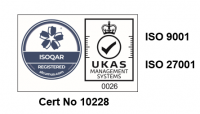

Disclosure documents are designed to to verify an applicant’s response to the general question ‘Do you have any criminal convictions?’ The exact question should reflect the level of Disclosure that will be required and the information that the employer is entitled to request. This is illustrated below:
Enhanced and Standard Level Disclosures:
For roles that are eligible for a Standard or Enhanced Disclosure the question would be “Do you have any unspent or spent criminal convictions?” At present the only way to confirm this information is by requesting an Enhanced or Standard check on the individual, and reviewing the information disclosed. For many industries there is a requirement to ask this question and confirm the response by obtaining a Disclosure, as part of the recruitment process. For more industry specific requirements you can view our ‘Case Study’ pages.
In May 2013 the legislation surrounding Disclosures was altered to create certain ‘protected’ spent convictions, that would be filtered on a record and not appear on Disclosure Certificates. Employers are not entitled to know this information and should not make any employment decisions based upon it, should the applicant self-disclose it.
Basic Level Disclosures:
Many employers include the question ‘do you have any unspent criminal convictions’ on application forms and interview questionnaires. As part of a robust recruitment process, we advise that employers confirm the response to this question, by requesting a Basic Level check on the applicant. This ensures that the best candidate is found for the employment opportunity on offer. For organisations with data security concerns or access to sensitive/financial information a Basic Disclosure may provide a useful tool to ensure that all staff members have been vetted.
General Guidance:
Where possible, the questions should be asked face-to face so that the respondent can relay any conviction information in the context of the events surrounding the offence. This also allows the interviewer to make an employment/placement decision at the earliest opportunity, thereby avoiding unnecessary effort and expense.
Asking the question in advance also puts the organisation in a much stronger position should the Disclosure reveal something that the subject did not mention when asked, making their verbal response untrue (assuming that the Disclosure is correct).
If it is not possible to discuss the question with the subject prior to receiving the Disclosure, the discussion of content can be had once the Disclosure is issued. It should be made clear that any employment offer made is subject to the Disclosure being satisfactory. Disclosure users should note that it can be more difficult to be objective when assessing the content, if the first knowledge of it is from the Disclosure document, so it is always preferable to ask the questions first.
When assessing Disclosure content the employer should always consider the seriousness and age of the offence, along with its relevance to the role on offer. The assessor should also establish whether there is a pattern to the offending that would make re-offending likely. As general guidance old or irrelevant conviction information should be ignored.





